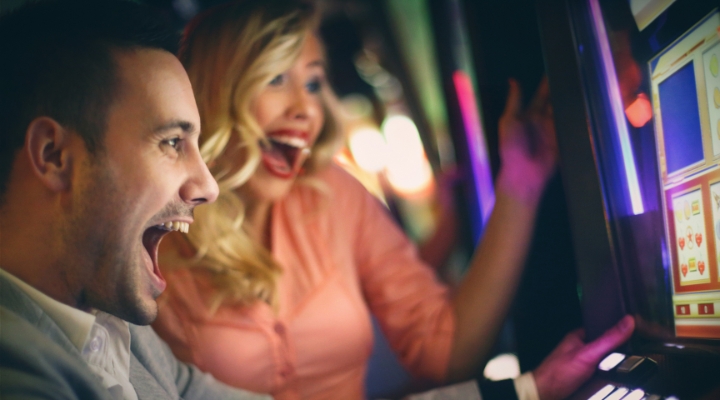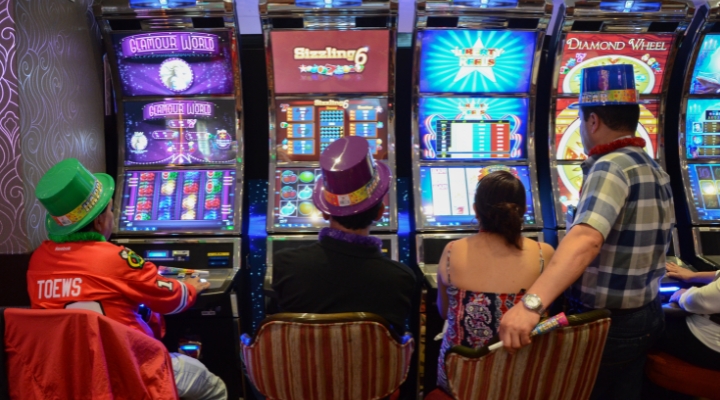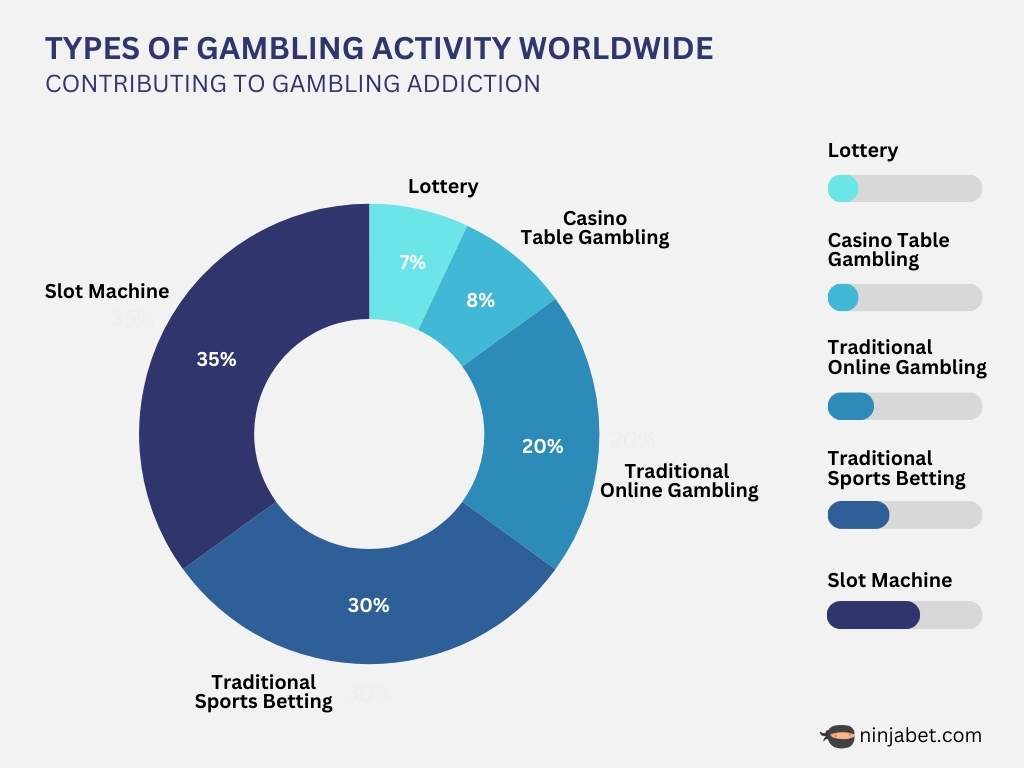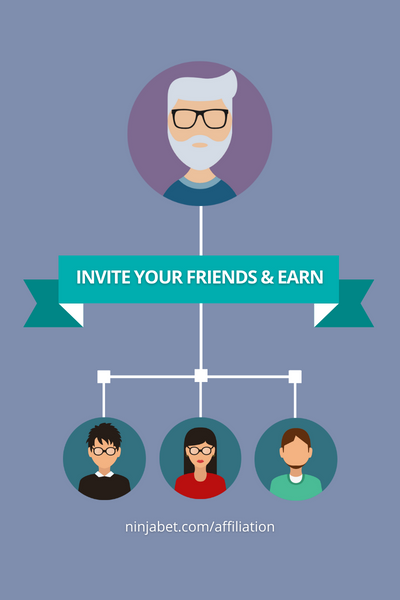Gambling Addiction
What Are the Signs, How to Prevent it and When to Seek Help

Gambling addiction is a growing concern affecting millions of people worldwide. Often hidden and misunderstood, it can have severe consequences on an individual’s financial stability, mental health, and relationships. Recognizing the signs early, understanding where the addiction comes from, and knowing how to prevent it or seek help are crucial steps in tackling this issue.
While matched betting is a risk-free and virtually always a profitable activity, it does overlap with the world of traditional gambling. In this article, we wanted to address this topic to ensure that you are aware of the negative aspects of risk wagering and offer you a valuable resource in case you or someone you know might have developed the unhealthy habit of gambling. Let’s dive in!

So What is a Gambling Addiction?
Gambling addiction, also known as compulsive gambling or gambling disorder, is a behavioral addiction characterized by an uncontrollable urge to keep gambling despite the negative consequences it brings. Unlike recreational gamblers who can gamble responsibly, people with gambling addiction are unable to stop or limit their gambling activities, leading to severe personal, social, and financial problems. The addiction often triggers intense feelings of pleasure when gambling and distress when unable to do so.

Where Does Gambling Addiction Come From?
Gambling addiction can stem from a complex mix of biological, psychological, social, and behavioral factors:
- Biological Factors: Genetics can play a role in a person’s predisposition to gambling addiction. Research suggests that individuals with a family history of addiction are more likely to develop similar behaviors. Another contributing factor here is the brain chemistry, particularly the one involving dopamine. Gambling triggers the release of dopamine, the “feel-good” neurotransmitter, reinforcing the behavior and creating a cycle of reward and craving.
- Psychological Factors: Mental health issues such as depression, anxiety, stress, or trauma can make a person more susceptible to gambling addiction. Gambling may serve as a coping mechanism to escape from these emotional struggles. Additionally, certain personality traits, like impulsivity or a high need for excitement and risk-taking, are also linked to higher chances of developing an addiction.
- Social and Environmental Factors: Peer pressure, cultural attitudes, and social norms around gambling can heavily influence behavior as well. In some cultures, gambling is seen as a socially acceptable activity, which can encourage more frequent participation. The influence of betting advertising, media portrayal, and the increased accessibility of online gambling opportunities can also contribute significantly to the development of gambling addiction.
- Behavioral Conditioning: Gambling addiction is often reinforced by the “intermittent rewards” system — winning occasionally makes the brain crave more gambling. It creates a rewarding loop where the brain recognizes and memorizes the activity that created that “feel-good” feeling. And so it continues to seek it. The aggressive, contrasting colors that bookmakers use on their websites and physical locations play an important role too. These are chosen very carefully and provoke people to bet more. Moreover, “near-miss” experiences (almost winning) can trigger continued gambling, as the brain perceives them as a sign of impending success.

7 Signs and Symptoms of Gambling Addiction
Recognizing the signs of gambling addiction early is key to preventing its harmful effects. Here are 7 things to look out for if you think you or someone you love might be developing this habit:
- Behavioral Changes: Obsessive thoughts about gambling, inability to cut back despite efforts, and lying about gambling activities.
- Financial Problems: Borrowing money to gamble or pay off debts, selling possessions, or stealing to fund gambling activity.
- Chasing Losses: Trying to win back lost money by continuing to gamble, often leading to greater losses.
- Gambling as an Escape from Problems: Using gambling as a way to escape from personal issues, stress, anxiety, or depression.
- Feeling Irritable When Not Gambling: Becoming anxious, restless, or irritable when attempting to stop or reduce gambling
- Emotional and Psychological Signs: Feelings of guilt, shame, anxiety, or depression related to gambling.
- Neglecting Responsibilities: Ignoring work, family and social obligations and activities in order to gamble.

Is Gambling Addiction More Common Among Men or Women?
Although some people believe that addictions are purely based on genetic traits, a study of the UK Gambling Commission shows that men are 7 and a half times more likely to develop a gambling addiction. This is further confirmed by a study of the US National Center of Biotechnology Information suggesting that men are more impulsive and take significantly more risks in general when exposed to stress.
Men are often drawn to the competitive, risk-taking nature of gambling, which aligns with certain masculine social norms. And although they are statistically more likely than women to develop gambling addiction, the issue among women is rising.

The data presented in the graph is sourced from reliable industry reports, including WorldAtlas, H2 Gambling Capital, and national gambling commissions.
Which Gambling Activity Contributes the Most to Gambling Addiction?
Slot machines are the top contributor to gambling addiction, accounting for 35% of all related activities. Their fast-paced gameplay, easy accessibility, and widespread appeal make them a dominant presence in casinos in the US, Europe and around the world.
Sports betting follows closely. Its interactive nature and ability to engage fans by letting them bet on different outcomes makes it the second most significant contributor.
Other forms of gambling, such as traditional online gaming, lotteries, and casino table games, play a smaller role in overall addiction rates. However, understanding these trends can help you in taking proactive steps to protect yourself from developing a gambling addiction.
For example, knowing that slot machines and traditional sports betting are higher-risk activities, you can limit your exposure to these forms of gambling or set strict limits on how much time and money you allocate to it. By staying informed and mindful of these risks, you’ll be better equipped to keep your gambling habits in check and avoid its negative consequences.

11 Tips for Gambling Addiction Prevention
Taking adequate measures to control your gambling activities can help significantly in preventing addictive behavior from developing in the first place. Here are 11 realistic tips and techniques to help you curb your bad habit:
- Set Limits: When gambling it’s extremely important to have a clear understanding of how much you can afford to lose without damaging your monthly budget. Expenses like accommodation, food, utility bills etc. should always come first before your gambling expenses. Establish not just financial but also a time limit for your gambling activities. Decide in advance how much money and time you will spend on gambling, and stick to it. Never exceed your limits, even if you’re winning.
- Be Aware of Your Emotions: Don’t gamble when you’re feeling stressed, anxious, or depressed. Emotional gambling can cloud judgment and lead to impulsive decisions.By avoiding gambling when emotional, you allow yourself to approach things from a more rational perspective and not use gambling as a stimulant for dopamine.
- Awareness and Education: One of the key steps in overcoming any sort of addiction is recognizing its existence. Many people spend months and years neglecting that there is any sort of problem while their financial situation gets worse and worse. Stay informed about the risks associated with gambling addiction and recognize personal triggers that drive you to take uncalculated risks. .
- Supportive Friends and Network: People you spend your days with play a huge role in establishing good (or bad) habits. Avoid social groups and activities that create negative environments. Instead surround yourself with people who encourage healthy behaviors and discourage impulsive ones.
- Find Alternative Hobbies: If the thrill of taking risks in hopes of a financial gain makes you feel good and alive, think about other activities you can take on to create similar sensations. You can pursue other interests, hobbies, or social activities that don’t involve gambling, such as sports, creative projects, or volunteering.
- Avoid Chasing Losses: Understand that losses are part of gambling, and chasing them can lead to larger financial problems. If you still chose to take part in this risky activity and are composed in doing so, know when to walk away!
- Only Gamble for Entertainment: Treat gambling as a form of entertainment, not a way to make money or solve financial problems. Instead of focusing on the possibility of winning, treat gambling like other entertainment expenses. Like, for example, going to the movies, dining out, or attending a concert. You’re paying for the experience, not expecting a financial return.
- Consider Matched Betting for Calculated Profit: If you want to play for profit and avoid the psychological traps of a possible gambling addiction, shifting from traditional gambling (which is high-risk and emotionally charged) to a controlled, mathematically grounded activity like matched betting. Reduce the thrill-seeking behavior associated with addiction, and guarantee a small, but steady win every time.
- Educate Yourself about the Odds: Learn the odds of the games you’re playing. Most gambling games are designed to favor the house, so being informed can prevent unrealistic expectations.
- Know Your Triggers: Identify your risk factors by becoming aware of personal triggers like boredom, loneliness, or financial stress, and find healthier ways to cope with these feelings. Be honest with yourself and take action to curb your impulses.
- Seek Support if Needed: If you feel you’re losing control, reach out to friends, family, or a professional before it becomes a serious problem. Support groups like Gamblers Anonymous can also help. We’ll provide you with a complete list of resources at the end of this article.

Approaching Gambling Addiction: How you can support someone who needs help
Developing and dealing with a gambling problem can be a very sensitive and emotional issue. Being kind towards those who need our help is the foundation to finding a lasting solution. Here are some practical scenarios and approaches to supporting a loved one who won’t seek help.
“I have a friend addicted to gambling who doesn’t think they need help”
If you have a friend struggling with gambling addiction who is resistant to seeking help, try approaching them with empathy and understanding. Express your concerns without judgment and encourage them to talk to a professional. Offer to accompany them to a support group meeting or counseling session.
“My partner is addicted to gambling and doesn’t want to admit it.”
Initiate a calm and honest conversation with your partner, focusing on your feelings and observations rather than directly confronting his gambling. Use “I” statements to express how his gambling affects you, such as, “I’m worried about how much stress this is causing you and our family.” Suggest exploring resources together, like a support group or financial counseling, framing it as a way to improve overall well-being and not just addressing the gambling. Offer practical help, such as researching local resources or attending a meeting with him for support. Make it clear that you’re there to support him regardless of his decision, but that you also need to prioritize your own well-being and set boundaries if his behavior continues to affect you.
“My parent’s gambling addiction is impacting our family finances, but they deny there’s a problem”
Begin by discussing the specific financial impacts of their gambling without accusing or blaming. For example, you might say, “I’ve noticed that our family budget is being stretched thin because of recent spending patterns. I’m concerned about how this could affect our financial future.” Offer to work together on a budget or financial plan to address the immediate issues, presenting it as a collaborative effort rather than a critique. Gently suggest that seeking professional help could provide tools and strategies to manage finances better and improve family stability. Reassure them that addressing the issue is a step towards a more secure and positive future, and that you’re ready to support them through the process.

Where to Seek Help for Gambling Addiction
If gambling begins to negatively impact your finances, relationships, or mental health, and that of your loved ones, it is crucial that you seek help. Professional support, such as counseling, cognitive behavioral therapy (CBT), and support groups like Gamblers Anonymous, can provide effective ways to manage and recover from gambling addiction.
Here is a Full List of Resources:
- Gamblers Anonymous (GA)
Website: www.gamblersanonymous.org
GA offers a 12-step program similar to Alcoholics Anonymous, providing support through meetings, forums, and resources for individuals struggling with gambling addiction.
- National Council on Problem Gambling (NCPG)
Website: www.ncpgambling.org
NCPG provides information on gambling addiction, treatment resources, a helpline, and live chat support. Their 24-hour helpline is 1-800-522-4700.
- Gambling Therapy
Website: www.gamblingtherapy.org
Gambling Therapy offers online support groups, forums, and live chat for those affected by gambling problems. It also provides multilingual support for users worldwide.
- SMART Recovery
Website: www.smartrecovery.org
SMART Recovery offers a science-based approach to overcoming addictions, including gambling, through online meetings, forums, and resources. They focus on self-empowerment and cognitive behavioral techniques.
- International Centre for Responsible Gaming (ICRG)
Website: www.icrg.org
ICRG provides research-based information on gambling addiction and treatment resources, with a focus on responsible gambling practices.

Sports Betting Techniques That Don’t Rely on Chance
An alternative method to traditional gambling is matched betting. It involves using mathematical calculations to profit from free bets and promotions offered by sports betting websites.
Matched Betting is a completely different approach as it takes out all the risks associated with gambling. You place bets, not in anticipation for a chance to win, but rather for the sake of eliminating risk and guaranteeing a small, but profitable win.
The profits in matched betting are predictable and you know how much you will earn before you even place the bets.
On the contrary, with traditional betting, you rely purely on guessing correctly. And here the dopamine imbalance is one of the main drivers when developing addictive behavior.
Should I Do Matched Betting If I Have a History with Gambling Addiction?
If you have a history of gambling addiction, you should be careful when engaging in any form of betting. It is vital to evaluate whether it might trigger similar addictive behaviors as before and to consult with a professional if you have any doubts.
Although matched betting is considered risk-free, you need to understand that the process requires placing bets in a specific sequence and following a predetermined plan. The earnings expectations are not huge. If previously with traditional betting you have earned hundreds and thousands of dollars, you should not expect the same from matched betting. Here are some comparative factors to consider:
Matched Betting vs. Traditional Betting
Matched Betting:
- Nature: Matched betting involves using a systematic, educated approach to profit from bookmaker promotions and free bets by covering all possible outcomes of an event.
- Risk: Low. It is designed to be low-risk as it relies on mathematical calculations rather than chance. However, it still involves betting platforms, which can expose individuals to negative environments and triggers, if you’ve had previous experience with gambling addiction.
- Addiction Risk: Low. The rational nature of matched betting reduces the likelihood of experiencing dopamine-driven highs and lows, as profits are predictable and calculated. Despite this, you should always monitor your behavior patterns and carefully manage them when necessary.
- Dopamine Effects: Low. The absence of unpredictable wins and losses and the steady precalculated profits in matched betting means less frequent and low dopamine spikes compared to traditional betting, potentially reducing the additional risk associated with emotional highs and lows.
Traditional Betting:
- Nature: Traditional betting relies on chance, with bets placed on uncertain outcomes. The excitement and unpredictability of the results drive the betting experience and make it an emotionally involved activity.
- Risk: High. The elevated risk of loss and emotional volatility are inherent here, as outcomes are unpredictable. This can lead to compulsive behavior and increased addiction risk.
- Addiction Risk: High. Traditional betting often involves significant dopamine spikes from wins and emotional lows from losses, contributing to a cycle of chasing losses and developing gambling problems. The emotional nature of traditional betting can drive addictive behavior more easily than the rational approach of matched betting.
- Dopamine Effects: High. The unpredictable nature of traditional betting creates frequent and intense dopamine surges, driving the emotional highs and lows associated with gambling addiction. These dopamine spikes can make it more difficult to control gambling impulses and easier to adopt them as a negative habit.
In Summary
If you want to learn more about matched betting, check out this article that covers everything you need to know about this technique.
In the meantime, however, remember that gambling addiction is a complex condition that requires awareness, prevention, and, when necessary, professional intervention. Recognizing the signs, understanding the factors contributing to addiction, and knowing when to seek help can make a significant difference. Remember, there is no shame in reaching out for support — whether for yourself or a loved one.
Liked this article? Share it with your friends on social media and let us know what we should discuss next.
Be the First to Know!
Get notified every time we publish a new article


Orlin Bakalov
@ninjabet
Hey! Hope you found this article useful and informative. If you enjoyed reading it or have any lingering questions about it, feel free to email us at [email protected]. Our team is always here to lend a hand and answer all your questions 😉. Also, we’d love to hear your brilliant suggestions for our next post! Is there a specific topic you’d like to dive into? Let us know! We’re all ears and ready to serve up the content that you want to read. Well, thanks again for being a part of our amazing NinjaBet community! I’ll look forward to hearing from you soon.














